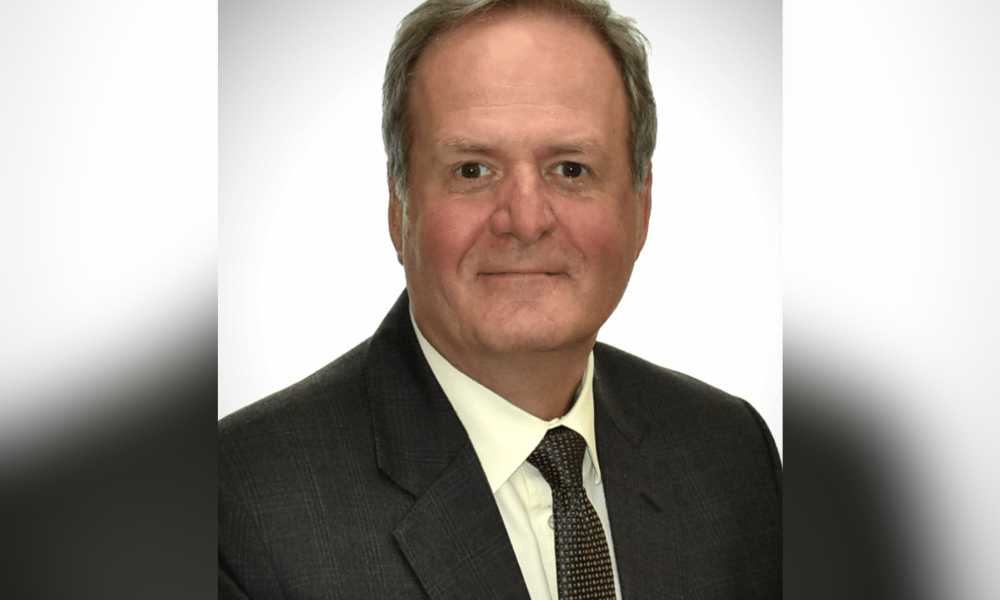Country Head at FTSE Russell Canada outlines market expectations in 2025, noting the new year might be the strongest performing year “of the last decade”

Paul Bowes can’t predict the future, but he is optimistic about it. The country head at FTSE Russell Canada, a branch of LSEG, says that 2025 has the potential to be one of the strongest performing years in the last decade.
Bowes’ optimism is not unfounded. He argues that interest rates in Canada and the US might not follow the expected downward trend due to political factors and economic conditions, while also highlighting Canada's strong debt-to-GDP ratio and its reliance on the US market. Unsurprisingly, tariffs also remain top of mind.
Bowes' bullish stance stems from a confluence of factors he believes will buoy the markets next year. Chief among them is the continued strength of the U.S. economy, which he sees as a key driver for Canada's own economic fortunes. While interest rates and global uncertainty remain key variables, he believes Canada and the U.S. are positioned to weather potential challenges better than most, particularly due to their economic resilience and interconnected growth.
Domestically, Bowes predicts that Canada's interest rates will continue on a downward trajectory, but at a much slower pace than over the past year, despite potential tariff impacts. “I believe there will be cuts but I think the cuts in 2025 will be much more modest,” says Bowes. “Possibly as few as one.”
Bowes attributes this tempered approach to the Bank of Canada’s cautious stance amid uncertainty, particularly with Canada’s Federal election expected in the coming year. Interest rate divergence between Canada and the U.S. has been a notable trend. The Bank of Canada has cut deeper and faster than the U.S. Federal Reserve over this cutting cycle. As to whether he expects this trend to continue, however, Bowes simply says no.
“As a Canadian, I'm kind of impressed,” he says. “We did what was right for Canada and I think it's turned out very well. The economy hasn't gotten a recession, even though it was a very precarious thing there for a couple months. They did that at a particular point in history, when they showed leadership, and they did what was right for the Canadian economy. We are so inextricably linked as two economies. The wild card is the tariffs.”
The interplay between tariffs, immigration policy, and employment within Canada will be central themes next year as Bowes points out that a second Trump presidency would likely follow a familiar negotiating playbook.
“The tariff comments from the President-elect, in my view, are similar to his first term, when he said they’re going to build a wall, and Mexico would pay for it. It makes great campaign slogans. I might even say that I have come to realize that Trump is not a fool. He has a tactic of negotiating to be very aggressive and then backs down to a position of where it can be negotiated. But his initial forays are provocative, and they work,” says Bowes.
Bowes' reasoning is that Trump, who has touted the stock market's performance as a barometer of his success, will be reluctant to implement policies that could trigger a major market downturn. This, combined with the continued injection of fiscal stimulus, could create an environment conducive to further market gains. While tariffs may dominate headlines, Bowes is sceptical that they will ultimately materialize to the extent feared.
However, should the president-elect impose tariffs, he believes that Canada will have no choice but to raise interest rates and impose our own tariffs, which in turn will likely result in the United States having to raise interest rates. But when all is said and done, Bowes believes the US and Canada will reach an accord.
“I believe it will go back to being more aligned. It’s tricky, though, especially because [the US] is the world's biggest economy, more so than ever. It's just booming,” says Bowes.
Of course, Bowes acknowledges the path ahead is not without risks. He cites the potential for Trump to make "mistakes" on issues like immigration and tariffs, which could be potential headwinds. He notes, as well, that the current bull market cannot continue indefinitely, with a correction likely to occur at some point during the Trump presidency or the next administration. But on balance, Bowes believes the Canadian and U.S. economies are well-positioned to weather any near-term turbulence.
Despite Canada’s strong debt-to-GDP ratio and economic resilience being points of pride for Bowes, productivity concerns persist as he stresses that a lack of investment in research and development could hold Canada back. “I think that unfortunately in Canada, could come back to haunt us. Canada took in over a million people last year in immigration. That's why we continue to have the growth in the economy,” he notes.
At the end of the day, Bowes' prediction for a "hot" market in 2025 reflects his confidence in the underlying strength of the North American economy.
“The bull market can’t go on forever. There will have to be a correction, that's inevitable. Maybe it'll be later in the Trump presidency, or maybe the next president when someone's going to do something about the debt. But for the time being, credit to the Biden administration, they just pumped cash into all sorts of things. And let's face it, that's helping the economy. Trump doesn't want to mess that up entirely,” he says.
“I think 2025 could be a spectacular year.”



